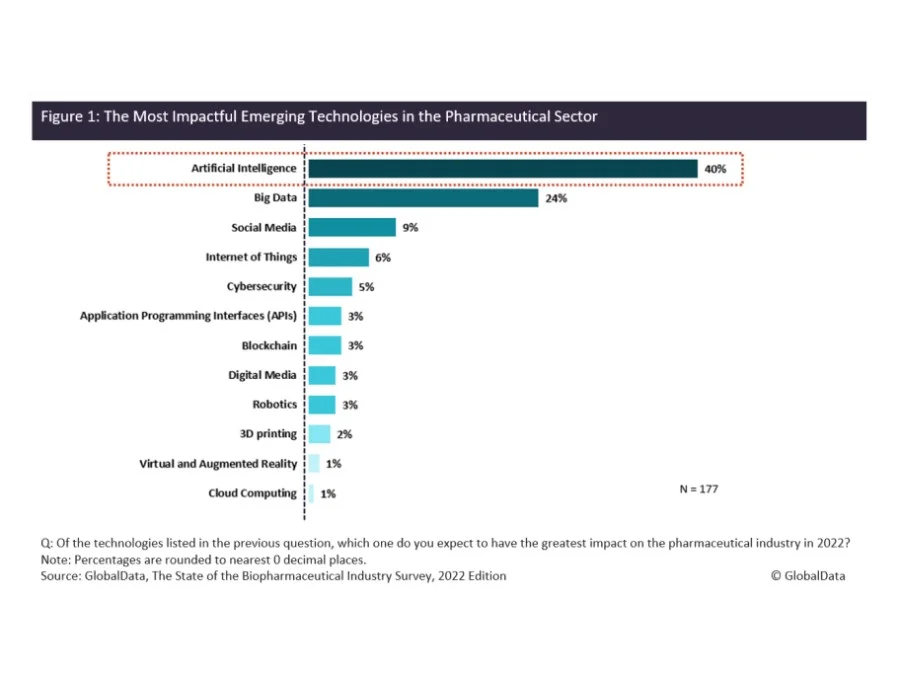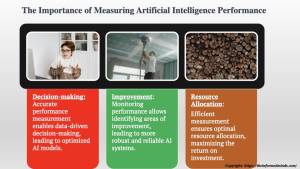Politics
Why is Artificial Intelligence Crucial for Biotechnology?
Published
2 years agoon
By
Drew Simpson
Biotechnology lies in the middle of biology and technology. Through modern technologies, it uses biological processes, organisms, cells, molecules, and systems to create new products for the benefit of humanity and the planet. In addition, it contains laboratory research and development through bioinformatics to explore and extract from biomass through biochemical engineering to develop high-value products. Biotechnology operates in various fields, such as agriculture, medical, animal, industrial, and others.
White biotechnology, related to creating products demanding chemical processes from biomass, can also be one of the solutions to the energy crisis by producing biofuel. The latter can be used for vehicles or heating.
Each organization working in the biotechnology sphere maintains voluminous sets of data stored in databases. This data must also be filtrated and analyzed to be valid and applicable. Such operations as drug manufacturing, chemical analysis, enzyme studies, and other biological processes should be backed by computerized solid tools for high performance and accuracy, as well as helps to reduce manual errors.
One of the most helpful technologies that help to manage the biological processes, drug production, supply chain, and deal with data within biotech is Artificial Intelligence.
It interacts with data received through scientific literature and clinical data trial. AI also manages incommensurable clinical trial datasets and enables virtual screening and analyze the high volume of data. As a result, it reduces clinical trial costs and results in discoveries and insights for any field in which biotech operates.
More predictable data makes it easier to build work processes and operations, enhances the speed of performance and the accuracy of the procedures, and makes decision-making more efficient. 79% claim that AI technology impacts workflows and becomes crucial to productivity.
All of these results are becoming more cost-effective solutions. The estimated revenue gained with the help of AI grew by $1.2 TN in the last three years.
Advantages of using artificial intelligence in biotechnology.
AI applies in various fields, but the most significant is the use of AI in medical care. Although such technology’s ability as data categorization and making predictive analyses are beneficial for any scientific sphere.
Managing and analyzing data
The scientific data is constantly expanding and has to be arranged in a meaningful way. This process is complicated and time-consuming: scientists must go through repetitive and heavy tasks, which must be performed with great attention.
The data they work with is a big part of the research process, which results in high cost and energy loss in case of failure. Moreover, many kinds of research don’t result in practical solutions, as they fail to be translated into human language. AI programs assist in the automation of data maintenance and analysis. Open source platforms empowered by artificial intelligence help reduce the repetitive, manual, and time-consuming duties lab workers have to perform, enabling them to focus on innovation-driven operations.
Gene modification, chemical compositions, pharmacologic investigations, and other critical informatics tasks are thoroughly examined for shorter and more reliable outcomes.
Effective data maintenance is indeed crucial to every scientific sector. However, the most significant advantage of AI is its ability to organize and systemize data into forms and make predictable outcomes.
Driving innovations in the medical sphere
Over the past ten years, we faced the urgent need for innovations in the manufacturing and deploying pharmaceuticals, industrial chemicals, food-grade chemicals, and other raw materials connected to biochemistry.
AI in Biotechnology is essential for fostering innovation throughout a drug’s or chemical compound’s lifecycle and in labs.
It assists in finding the right combination of chemicals through computing permutations and combinations of different compounds without manual lab testings. In addition, cloud computing makes the distribution of raw materials used within biotech more efficient.
In 2021 the research lab DeepMind developed the most comprehensive human protein map using AI. Proteins fulfill various tasks in the human organism – from building tissue to conquering diseases. Their molecular structure dictates their purpose, which can have thousands of iterations—knowing how protein folds help to understand its function so that scientists can figure out numerous biological processes, such as how the human body works or create new treatments and medicines.
Such platforms give access to data about discoveries for scientists all over the world.
The AI tools help decode data for uncovering the mechanisms of particular diseases in different regions and help make analytical models accurate for their geography. Before using AI, time-consuming and costly experiments were performed to determine the structure of the proteins. And now, about 180,000 protein structures made by the program are available through the Protein Data Bank for free to be used by scientists.
Machine Learning helps make lines diagnosis more accurate, using actual findings to enhance diagnostic tests. And the more tests are performed, the more precise results are generated.
AI is a great tool to enhance electronic health records with evidence-based medications and clinical decision support systems.
Artificial Intelligence is also frequently employed in genetic manipulation, radiology, customized medicine, medication management, and other fields. For example, according to the current study, AI improved breast cancer screening accuracy and efficiency compared to a standard breast radiologist. As well as another research claims that lung cancer can be spotted faster by neural networks than by trained radiologists. Another AI application is to detect diseases more accurately through X-rays, MRIs, and CT scans through AI-driven software.
Reduces time of research
New illnesses spread quickly across countries due to globalization. We witnessed it with COVID-2019; as a result, biotechnology has to speed up its production of necessary medications and vaccines to stand against such illnesses.
Artificial intelligence and machine learning maintain the process of detecting the proper compounds, assisting in their synthesis in labs, helping to analyze data for effectiveness, and supplying them to the market. The use of AI in biotech reduces the time in operations performance from 5-10 years to 2-3 years.
Boosting harvest production
Biotechnology is critical in genetically engineering plants to generate richer harvests. The role of AI-based technologies is increasing in studying crop characteristics, comparing qualities, and projecting realistic output. The agricultural biotech also uses robotics, a branch of artificial intelligence, for manufacturing, collecting, and other critical tasks.
By combining such data as weather forecasts, farming characteristics, and the accessibility of seeds, compost, and chemicals, AI aids in planning future patterns in material circulation.
AI in Industrial biotechnology
IoT and AI are widely used in producing vehicles, fuels, fibers, and chemicals. AI analyzes the data collected by IoT to transform it into valuable data for improving the production process and product quality by forecasting outcomes.
Computer simulations and AI come up with the expected molecular design. Strains are being produced through robotics and machine learning to test the accuracy of developing the desired molecule.
To sum up
Though this is just the start of using AI in biotech, many improvements can already be offered to various spheres. Moreover, the growing development of the software empowered by Artificial Intelligence in biotech demonstrates that it can be used for multiple processes, operations, and tactics to obtain a competitive advantage.
It can not only drive innovations but also be a valuable tool to reduce costs by making more accurate tests and predicting results without the actual performance of the experiments in the lab.
As well as find the future necessities of humanity in healthcare and agriculture, forecast potential losses, and make prognoses for companies where they should target their resources for more effective production and supply.
Featured Image Credit: Provided by the Author; Thank you!
You may like
-


Medical microrobots that can travel inside your body are (still) on their way
-


Google DeepMind wants to define what counts as artificial general intelligence
-


Enabling enterprise growth with data intelligence
-


Everything you need to know about artificial wombs
-


The Download: brain bandwidth, and artificial wombs
-


Best Artificial Intelligence Performance Measurement Solution in 2023
Politics
Fintech Kennek raises $12.5M seed round to digitize lending
Published
7 months agoon
10/11/2023By
Drew Simpson
London-based fintech startup Kennek has raised $12.5 million in seed funding to expand its lending operating system.
According to an Oct. 10 tech.eu report, the round was led by HV Capital and included participation from Dutch Founders Fund, AlbionVC, FFVC, Plug & Play Ventures, and Syndicate One. Kennek offers software-as-a-service tools to help non-bank lenders streamline their operations using open banking, open finance, and payments.
The platform aims to automate time-consuming manual tasks and consolidate fragmented data to simplify lending. Xavier De Pauw, founder of Kennek said:
“Until kennek, lenders had to devote countless hours to menial operational tasks and deal with jumbled and hard-coded data – which makes every other part of lending a headache. As former lenders ourselves, we lived and breathed these frustrations, and built kennek to make them a thing of the past.”
The company said the latest funding round was oversubscribed and closed quickly despite the challenging fundraising environment. The new capital will be used to expand Kennek’s engineering team and strengthen its market position in the UK while exploring expansion into other European markets. Barbod Namini, Partner at lead investor HV Capital, commented on the investment:
“Kennek has developed an ambitious and genuinely unique proposition which we think can be the foundation of the entire alternative lending space. […] It is a complicated market and a solution that brings together all information and stakeholders onto a single platform is highly compelling for both lenders & the ecosystem as a whole.”
The fintech lending space has grown rapidly in recent years, but many lenders still rely on legacy systems and manual processes that limit efficiency and scalability. Kennek aims to leverage open banking and data integration to provide lenders with a more streamlined, automated lending experience.
The seed funding will allow the London-based startup to continue developing its platform and expanding its team to meet demand from non-bank lenders looking to digitize operations. Kennek’s focus on the UK and Europe also comes amid rising adoption of open banking and open finance in the regions.
Featured Image Credit: Photo from Kennek.io; Thank you!
Radek Zielinski
Radek Zielinski is an experienced technology and financial journalist with a passion for cybersecurity and futurology.
Politics
Fortune 500’s race for generative AI breakthroughs
Published
7 months agoon
10/11/2023By
Drew Simpson
As excitement around generative AI grows, Fortune 500 companies, including Goldman Sachs, are carefully examining the possible applications of this technology. A recent survey of U.S. executives indicated that 60% believe generative AI will substantially impact their businesses in the long term. However, they anticipate a one to two-year timeframe before implementing their initial solutions. This optimism stems from the potential of generative AI to revolutionize various aspects of businesses, from enhancing customer experiences to optimizing internal processes. In the short term, companies will likely focus on pilot projects and experimentation, gradually integrating generative AI into their operations as they witness its positive influence on efficiency and profitability.
Goldman Sachs’ Cautious Approach to Implementing Generative AI
In a recent interview, Goldman Sachs CIO Marco Argenti revealed that the firm has not yet implemented any generative AI use cases. Instead, the company focuses on experimentation and setting high standards before adopting the technology. Argenti recognized the desire for outcomes in areas like developer and operational efficiency but emphasized ensuring precision before putting experimental AI use cases into production.
According to Argenti, striking the right balance between driving innovation and maintaining accuracy is crucial for successfully integrating generative AI within the firm. Goldman Sachs intends to continue exploring this emerging technology’s potential benefits and applications while diligently assessing risks to ensure it meets the company’s stringent quality standards.
One possible application for Goldman Sachs is in software development, where the company has observed a 20-40% productivity increase during its trials. The goal is for 1,000 developers to utilize generative AI tools by year’s end. However, Argenti emphasized that a well-defined expectation of return on investment is necessary before fully integrating generative AI into production.
To achieve this, the company plans to implement a systematic and strategic approach to adopting generative AI, ensuring that it complements and enhances the skills of its developers. Additionally, Goldman Sachs intends to evaluate the long-term impact of generative AI on their software development processes and the overall quality of the applications being developed.
Goldman Sachs’ approach to AI implementation goes beyond merely executing models. The firm has created a platform encompassing technical, legal, and compliance assessments to filter out improper content and keep track of all interactions. This comprehensive system ensures seamless integration of artificial intelligence in operations while adhering to regulatory standards and maintaining client confidentiality. Moreover, the platform continuously improves and adapts its algorithms, allowing Goldman Sachs to stay at the forefront of technology and offer its clients the most efficient and secure services.
Featured Image Credit: Photo by Google DeepMind; Pexels; Thank you!
Deanna Ritchie
Managing Editor at ReadWrite
Deanna is the Managing Editor at ReadWrite. Previously she worked as the Editor in Chief for Startup Grind and has over 20+ years of experience in content management and content development.
Politics
UK seizes web3 opportunity simplifying crypto regulations
Published
7 months agoon
10/10/2023By
Drew Simpson
As Web3 companies increasingly consider leaving the United States due to regulatory ambiguity, the United Kingdom must simplify its cryptocurrency regulations to attract these businesses. The conservative think tank Policy Exchange recently released a report detailing ten suggestions for improving Web3 regulation in the country. Among the recommendations are reducing liability for token holders in decentralized autonomous organizations (DAOs) and encouraging the Financial Conduct Authority (FCA) to adopt alternative Know Your Customer (KYC) methodologies, such as digital identities and blockchain analytics tools. These suggestions aim to position the UK as a hub for Web3 innovation and attract blockchain-based businesses looking for a more conducive regulatory environment.
Streamlining Cryptocurrency Regulations for Innovation
To make it easier for emerging Web3 companies to navigate existing legal frameworks and contribute to the UK’s digital economy growth, the government must streamline cryptocurrency regulations and adopt forward-looking approaches. By making the regulatory landscape clear and straightforward, the UK can create an environment that fosters innovation, growth, and competitiveness in the global fintech industry.
The Policy Exchange report also recommends not weakening self-hosted wallets or treating proof-of-stake (PoS) services as financial services. This approach aims to protect the fundamental principles of decentralization and user autonomy while strongly emphasizing security and regulatory compliance. By doing so, the UK can nurture an environment that encourages innovation and the continued growth of blockchain technology.
Despite recent strict measures by UK authorities, such as His Majesty’s Treasury and the FCA, toward the digital assets sector, the proposed changes in the Policy Exchange report strive to make the UK a more attractive location for Web3 enterprises. By adopting these suggestions, the UK can demonstrate its commitment to fostering innovation in the rapidly evolving blockchain and cryptocurrency industries while ensuring a robust and transparent regulatory environment.
The ongoing uncertainty surrounding cryptocurrency regulations in various countries has prompted Web3 companies to explore alternative jurisdictions with more precise legal frameworks. As the United States grapples with regulatory ambiguity, the United Kingdom can position itself as a hub for Web3 innovation by simplifying and streamlining its cryptocurrency regulations.
Featured Image Credit: Photo by Jonathan Borba; Pexels; Thank you!
Deanna Ritchie
Managing Editor at ReadWrite
Deanna is the Managing Editor at ReadWrite. Previously she worked as the Editor in Chief for Startup Grind and has over 20+ years of experience in content management and content development.

